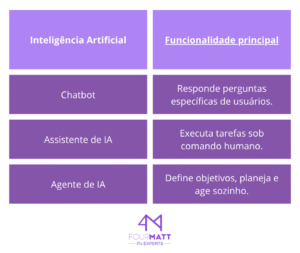AI agents are intelligent software programs that observe data, decide on actions, and execute tasks autonomously, allowing companies to gain agility, efficiency, and focus on strategic activities.
This guide explains what AI agents are, how they operate, their differences from chatbots and traditional automation, practical application examples, benefits, and best practices for responsible implementation. Understand the structure and functioning of AI agents and discover where they can generate the most value in the daily operations of companies. Furthermore, learn about the precautions and strategies to adopt to use this technology safely and efficiently.
What are AI agents?
AI agents are systems based on artificial intelligence designed to act autonomously, perceiving the environment, analyzing information, and executing actions aligned with predefined goals.
While a chatbot simply answers questions, an AI agent acts proactively, plans steps, learns from the results, and adjusts its behavior according to the context.
These agents can be powered by learning modeling tools (LLMs), decision systems, machine learning algorithms, and integrations with enterprise APIs. The goal is to increase autonomy and operational intelligence while reducing the need for direct commands.
Essential characteristics of AI agents
To be considered a genuine AI agent, the system needs to meet some fundamental requirements:
- Perception: It collects and interprets data from the environment (systems, sensors, users).
- Planning: Define objectives and create action plans.
- Reasoning and decision-making: He assesses options and chooses the best path.
- Execution: Performs concrete actions in software, platforms, or workflows.
- Apprenticeship: Adjusts behaviors and strategies based on results.
- Autonomy: It operates with minimal human supervision, allowing it to act proactively.
Thus, these characteristics make AI agents powerful tools for increasing the operational efficiency and responsiveness of companies.
Difference between AI agents, chatbots, and traditional automation.
Although often confused, these concepts are distinct. See the main function of each:
While conventional automation relies on rigid workflows, AI agents can decide what to do, how to do it, and when to do it, reacting to changing scenarios.
Advantages of agents compared to other AIs
As we have seen, AI agents are autonomous, intelligent, and proactive, which sets them apart from bots and common automation systems due to their decision-making capabilities. Furthermore, they can be applied across multiple sectors and business workflows, offering efficiency, accuracy, and cost reduction.
However, like all technologies, they require good practices and solid governance to avoid risks.
Where can AI agents be applied?
AI agents are gaining ground in various sectors and can essentially operate in any segment. Here are some of the most common uses of these agents:
- Atendimento ao cliente: agentes monitoram tickets, identificam urgências e resolvem casos automaticamente.
- Finanças: analisam transações, detectam anomalias e recomendam ajustes em tempo real.
- Logística: otimizam rotas, controlam estoques e antecipam falhas operacionais.
- Recursos Humanos: realizam triagem de currículos e sugerem candidatos com base em critérios específicos.
- Marketing: geram relatórios de desempenho, ajustam campanhas e personalizam mensagens.
In other words, we realize that AI agents not only automate, but also make contextual decisions to increase the value delivered to the business.
Business benefits of AI agents
The practicality and streamlined nature of tasks have been major highlights of agent implementation. Furthermore, consider the key advantages recognized for using AI agents in your company:
- Productivity: Performing repetitive tasks on a large scale.
- Speed: Instant decisions based on data.
- Cost reduction: Less rework and greater operational efficiency.
- Precision: Analyses based on real-time data.
- Innovation: Intelligent processes that adapt continuously.
Furthermore, agents allow operations to be scalable without a proportional increase in costs, a competitive advantage in dynamic business environments.
Therefore, if you are looking for more advantages and benefits, especially to optimize workflow and automate complex tasks, it's also worth checking out the platform. ServiceNow, reference in Integration of AI and business automation.
Read also:
ServiceNow Zurich: New release focuses on Artificial Intelligence and workflow innovation
Now Assist: ServiceNow's generative AI
ServiceNow AI: How Apriel-1.5-15B Works
Risks of good implementation practices
However promising they may be, AI agents require careful handling. Therefore, to minimize risks and oversights with these agents, it is essential to:
- Ensure data governance and security.
- Define clear objectives before implementation.
- Maintain human supervision in critical tasks.
- Start with pilot projects before expanding.
- Adopt key performance indicators (KPIs) to track results.
- Continuously update the agent model and training.
In this way, good practices reduce risks and increase the reliability of intelligent systems, ensuring sustainable results.
Steps to implement an AI agent
Below is a step-by-step guide to implementing an AI agent in your organization:
- Map out processes that can be automated.
- Identify decision points and data flows.
- Choosing the right AI architecture and model.
- Develop a prototype and test it in a controlled environment.
- Monitor performance metrics and adjust parameters.
- Escalate to other departments after validation.
In short, success depends on the combination of technology, governance, and business strategy.
FAQ – AI Agents
1. Do AI agents replace people?
No. They expand human capacity by taking on repetitive tasks and allowing professionals to focus on strategic decisions.
2. Is all automation an AI agent?
No. Traditional automation follows fixed rules, while AI agents learn and adapt according to the context.
3. How long does it take to implement an AI agent?
It depends on the scope. Simple pilot projects can be launched in weeks, while corporate projects require months of development.
4. Which areas benefit the most?
Customer service, logistics, marketing, finance, and human resources are among the most impacted areas.
5. Are AI agents safe?
Yes, provided they follow good practices for security, privacy, and human oversight.
How 4MATT can support your journey with AI.
4MATT specializes in intelligent solutions and enterprise automation. With a strategic approach and a focus on results, the company helps organizations plan, develop, and integrate AI agents in a secure, scalable, and customized way.
Contact 4MATT to discover how to apply AI in a practical and efficient way to your business processes.












